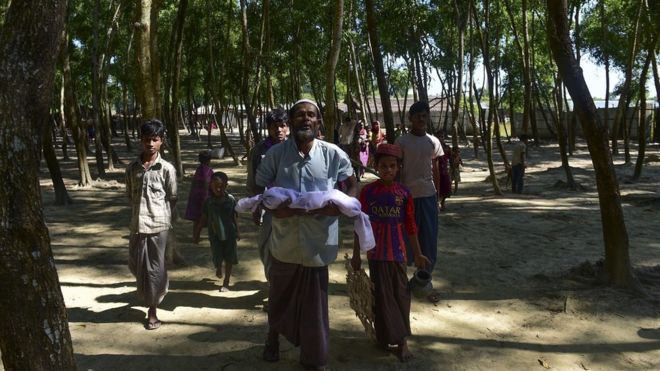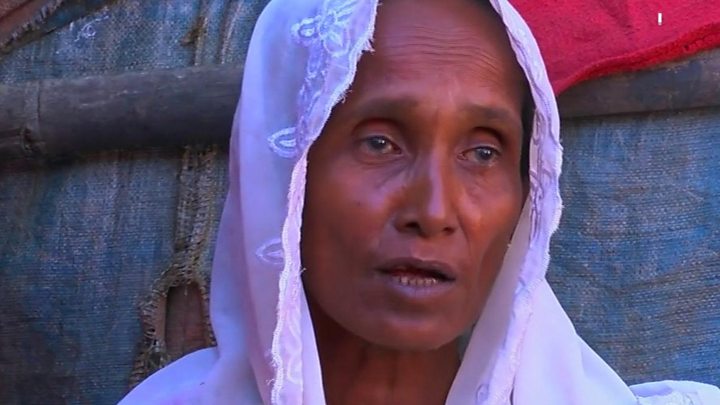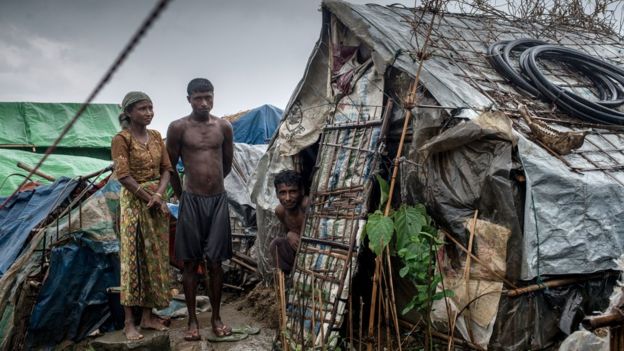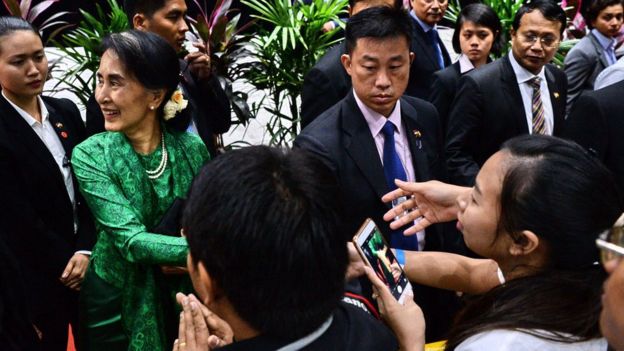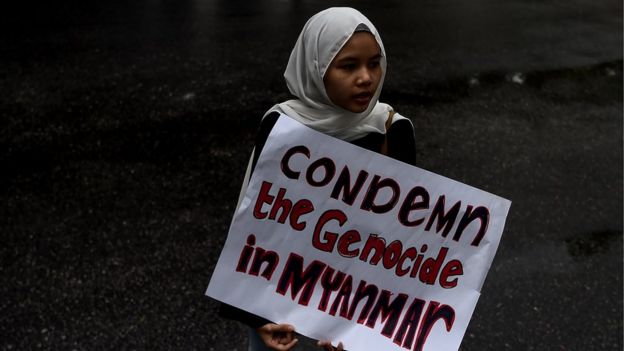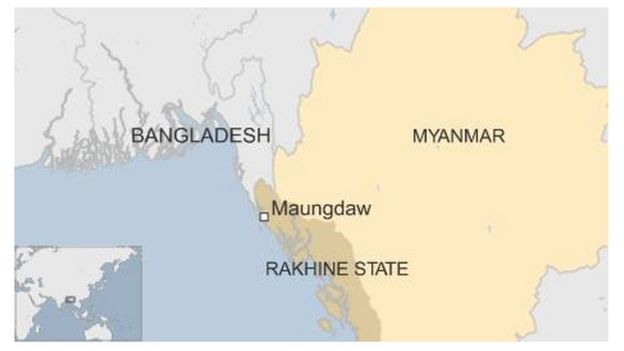Muslim population down from 3.9 to 2.3 percent in 35 years, but figure does not include around 1.2 million Rohingya Muslims!
By Kyaw Ye Lynn
YANGON, Myanmar
After a two-year-delay, the government of Myanmar has finally released controversial data on religion from a 2014 census.
The results of the Myanmar Population and Housing Census had been on hold since results were compiled, due to fears that they may inflame tensions between the country's Buddhist and Muslim populations
Figures released Thursday show that the country's Muslim population has fallen from 3.9 percent of the overall population in the 1983 census to just 2.3 percent -- a figure that does not include around 1.2 million mostly Rohingya Muslims in western Rakhine State -- who were not enumerated.
Countrywide, 89.8 percent registered as Buddhist, 6.3 percent as Christian, 2.3 percent as Muslim, 0.5 percent as Hindu, 0.8 percent as Animist, 0.2 percent as "other" and 0.1 percent as having no religion, according to the report.
It added that of the country’s 51 million population, 1,147,495 registered as "Muslim".
Given that the some 1.2 million Rohingya Muslims from Rakhine State were not enumerated -- mostly because they were not allowed to identify as "Rohingya" and instead had to register as "Bengali" (a term that suggests that they are not Myanmar nationals, but interlopers from neighboring Bangladesh) -- the unofficial number of Muslims in the country could be as high as 2.35 million (or 4.61 percent of the population).
Analysts and Muslim bodies, however, have suggested that the real number is far higher. At the release of the country's previous census in 1983, the true number of Muslims in the country was estimated to be at around 10 percent -- a figure many suspect may still be the case today.
On Thursday, Tin Maung Than, secretary-general of the country's official Muslim body, the Islamic Religious Affairs Council Myanmar, told Anadolu Agency that community-based surveys and calculations based on birth rate should put the overall Muslim population at between 4 and 10 percent.
“The data may not be accurate because it is our first census in 30 years,” he said.
“The procedure for a Muslim to get a National Registration Card is very complicated and confused, so many people [Muslims] fill them in as 'Buddhist' to make it easier [to get a card]. These people then list them as Buddhists in the census too.”
Thursday's report noted that many from the sizeable Muslim community in Rakhine State were not included in the survey.
"The size of the non-enumerated population in Rakhine is significant enough to have an impact on the results on religion at both the Rakhine State level and at the Union [country-wide] level," the report noted.
Figures for Rakhine alone were 96.2 percent Buddhist, 1.8 percent Christian and 1.4 percent Muslim.
Since communal violence broke out between ethnic Buddhists and Muslims in Rakhine in 2012, nationalists have claimed "a rise in the Muslim population due to high birth rates" as justification for their campaigns to “protect” race and religion in the country.
With this in mind, the previous quasi-civilian government had delayed releasing the results for fear of inflaming tensions between the country's majority Buddhist and minority Muslim populations.
On Thursday, the United Nations Population Fund (UNFPA) welcomed the release, underlining that it provided an opportunity for Myanmar to embrace its long history of cultural diversity, while promoting the benefits of a truly inclusive society.
“It is time to replace speculation with fact. The peoples of Myanmar form a vibrant socio-cultural fabric with the power to forge hope of sustainable peace and respectful co-existence,” Janet E. Jackson, the country's UNFPA representative, said in a statement
The UNFPA recognized, however, the non-enumeration of those who wished to self-identify as Rohingya as a "serious shortcoming and grave human rights concern", saying it was "critical that this and all rights are restored as soon as possible".
“Most [Rohingya] face severe restrictions to freedom of movement, depriving them of access to health services, education and employment. Many remain displaced from their homes,” Jackson stated.
Since mid-2012, communal violence between ethnic Buddhists and Muslims in Rakhine has left around 57 Muslims and 31 Buddhists dead, some 100,000 people displaced in camps and more than 2,500 houses burned -- most of which belonged to Rohingya.
The impoverished region is also home to other Muslims, such as the Kaman. Unlike the Rohingya, the Kaman is officially recognized as one of Myanmar’s 135 ethnic groups.
Since the National League for Democracy's victory in the Nov. 8 election, leader (and now State Counselor) Aung San Suu Kyi has been placed under tremendous international pressure to solve problems faced by Rohingya but has had to play a careful balancing act for fear of upsetting the country's nationalists, many of whom have accused Muslims of trying to eradicate the country's Buddhist traditions.
Suu Kyi has, however, enforced the notion that the root of many of Rakhine's problems are economic, and is encouraging investment in the area, which in turn her party hopes will lead to reconciliation between the Buddhist and Muslim communities.





